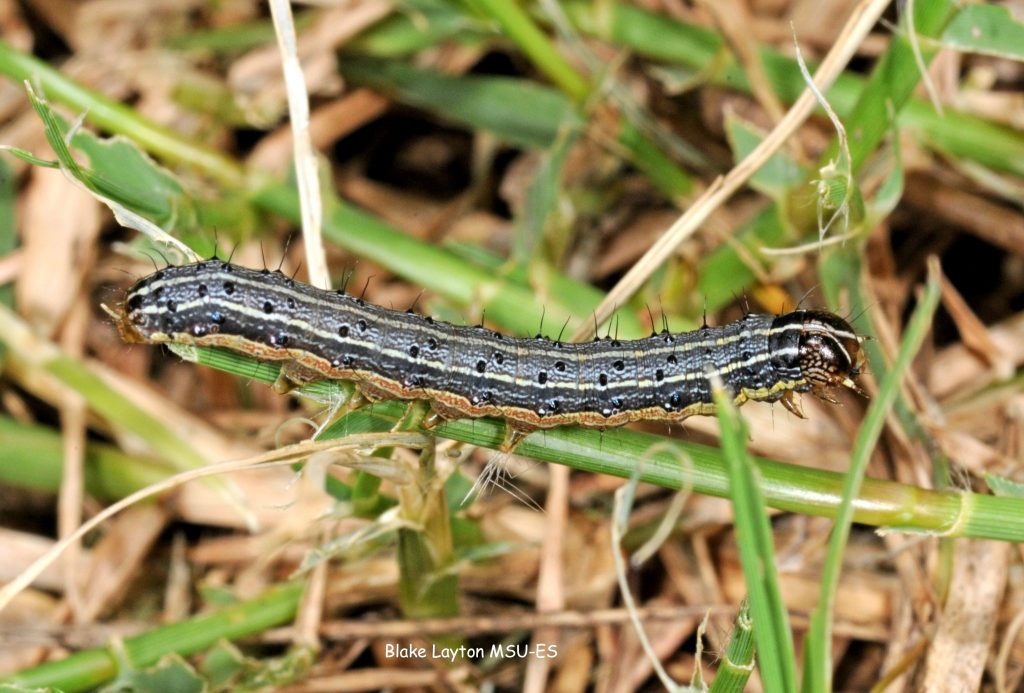
Alabama vegetable and specialty crop producers be alert: Insect pests are active across the state. According to Alabama Extension, the state’s Extension System Vegetable IPM program has started monitoring insects across Alabama. A few locations are active right now.
Included are moth counts to date from locations using sticky wing pheromone traps:
Beet armyworm – 3; fall armyworm – 20; southern armyworm – 11; lesser cornstalk borer – 3; squash vine borer – 7
Fall Armyworms
Fall armyworms are ahead in activity compared to beet armyworms which is unusual at the monitoring locations. This is likely attributed to the weather. Recent storms moved these moths. Egg laying (masses of eggs) should be visible on transplants and small crops. Drought conditions could worsen caterpillar pressure.
However, according to the U.S. Drought Monitor, there is sufficient moisture across the state, except for northeast counties and along the Alabama-Georgia line. These abnormally dry conditions include portions of Randolph County, Clay County, Talladega County, Calhoun County and Clerburne County.
Spider Mites
Spider mites are also active on strawberries and vegetable crops, especially under high tunnels and under exceptionally dry conditions. Remember not to make mites worse with pesticide applications. It is important to rotate insecticides on commercial vegetables.
Farmers need to scout crops closely for caterpillars and other insects such as aphids, leaffooted bugs and stink bugs. Multiple overlapping of generations may be feeding on various crops. Growers can download the Farming Basics Phone App to view pictures of caterpillars and sucking insects that are an annual problem. Use the app to contact a regional Extension agent or to search IPM videos in the playlist.
Refer to the 2021 Southeastern Vegetable Production Handbook, Home Garden Vegetable Insecticide Guide, the Organic Vegetable IPM Slide Chart, or the Urban Farm IPM Slide Chart for insecticide choices related to specialty crops.









